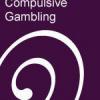 The support for the Massachusetts gambling expansion bill has just gained another rather unexpected ally. The Massachusetts Council on Compulsive Gambling, which advocates for policies to counter “the devastation caused by problem gambling,” has openly pledged its support to back the Massachusetts gambling expansion bill. The Council praised the bill for adding provisions in the expanded gambling bill that take aim at combating gambling addiction.
The support for the Massachusetts gambling expansion bill has just gained another rather unexpected ally. The Massachusetts Council on Compulsive Gambling, which advocates for policies to counter “the devastation caused by problem gambling,” has openly pledged its support to back the Massachusetts gambling expansion bill. The Council praised the bill for adding provisions in the expanded gambling bill that take aim at combating gambling addiction.
However, it should be noted that the council, which is funded primarily by the state and private donations, has emphasized that it is neutral on matters of expanded gambling policy but seeks to ensure that resources are in place for problem gamblers.
The council praised the legislation for including: an “exclusion list” to prevent gambling addicts from entering casinos, a posted list of payback statistics on slot machines, onsite space for compulsive gambling counseling, substance abuse and mental health counseling, plans for research related to problem gambling’s impact on areas near casinos, and a public health trust fund to address compulsive gambling.
Council Executive Director Marlene Warner said in a statement, “We would like to thank the Legislators for taking into account so many of the things that we’ve asked them to consider and for developing a bill that we feel is a big step in the right direction toward addressing concerns about problem gambling and ensuring services for people vulnerable to gambling problems.”- Taunton Daily Gazette.
Of course, opponents of the bill are quick to chastise the Council for supporting gambling expansion in the state. But what they obviously don’t realize or fail to take into account is that people want to gamble in the state on Massachusetts and the state has been losing those customers to places like Connecticut.
Unlike the opponents, the council is also likely well aware of the fact that reputable gambling studies have shown an increase in the availability of gambling avenues does not correlate to increased gambling addiction.
